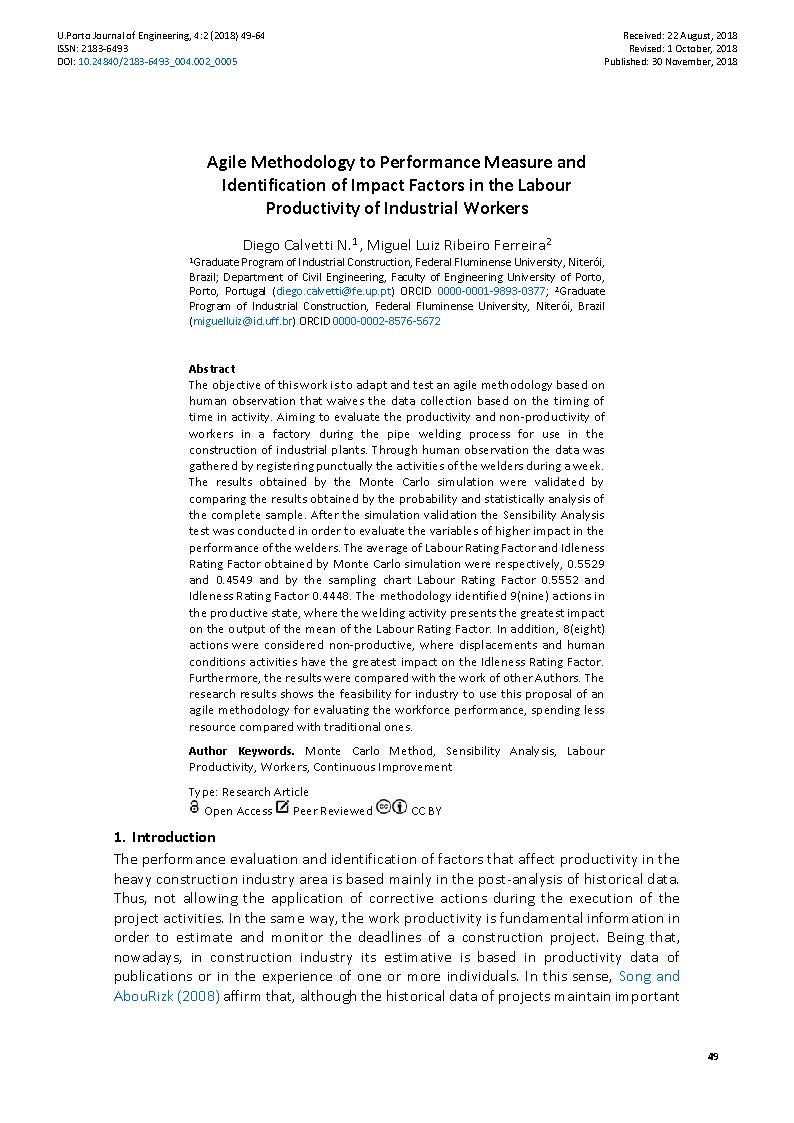Agile Methodology to Performance Measure and Identification of Impact Factors in the Labour Productivity of Industrial Workers
Main Article Content
Abstract
The objective of this work is to adapt and test an agile methodology based on human observation that waives the data collection based on the timing of time in activity. Aiming to evaluate the productivity and non-productivity of workers in a factory during the pipe welding process for use in the construction of industrial plants. Through human observation the data was gathered by registering punctually the activities of the welders during a week. The results obtained by the Monte Carlo simulation were validated by comparing the results obtained by the probability and statistically analysis of the complete sample. After the simulation validation the Sensibility Analysis test was conducted in order to evaluate the variables of higher impact in the performance of the welders. The average of Labour Rating Factor and Idleness Rating Factor obtained by Monte Carlo simulation were respectively, 0.5529 and 0.4549 and by the sampling chart Labour Rating Factor 0.5552 and Idleness Rating Factor 0.4448. The methodology identified 9(nine) actions in the productive state, where the welding activity presents the greatest impact on the output of the mean of the Labour Rating Factor. In addition, 8(eight) actions were considered non-productive, where displacements and human conditions activities have the greatest impact on the Idleness Rating Factor. Furthermore, the results were compared with the work of other Authors. The research results shows the feasibility for industry to use this proposal of an agile methodology for evaluating the workforce performance, spending less resource compared with traditional ones.
Downloads
Article Details
Authors who publish with this journal agree to the following terms:
- Authors retain copyright and grant the journal right of first publication with the work simultaneously licensed under a Creative Commons Attribution License that allows others to share the work with an acknowledgement of the work's authorship and initial publication in this journal.
- Authors grant the journal the rights to provide the article in all forms and media so the article can be used on the latest technology even after publication and ensure its long-term preservation.
- Authors are able to enter into separate, additional contractual arrangements for the non-exclusive distribution of the journal's published version of the work (e.g., post it to an institutional repository or publish it in a book), with an acknowledgement of its initial publication in this journal.
- Authors are permitted and encouraged to post their work online (e.g., in institutional repositories or on their website) prior to and during the submission process, as it can lead to productive exchanges, as well as earlier and greater citation of published work (See The Effect of Open Access).

